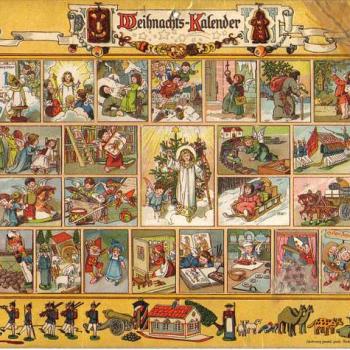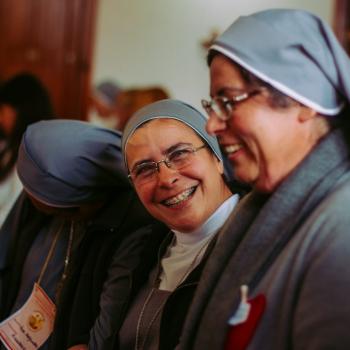In the modern field of queer studies and queer theory, something that might strike those who aren't familiar with these subjects has emerged: "queer" is not necessarily synonymous with, nor a catch-all term for, the various "alphabet soup" identities of modern gay, lesbian, bisexual, transgendered/transsexual, intersexed, asexual, questioning, and allied persons, as well as other potentially atypical or non-normative sexual orientation, sexual practice, and gender identity labels. It certainly can be, but it doesn't have to be.
Thus, it is perfectly possible for someone who is gay, and who worships what they consider to be a gay god, to not be doing queer theology, using queer theory, or to be in any sense (outside of a homophobe's pejorative usage) "queer." If said gay person is of a majority or privileged group otherwise—being, perhaps, white, middle-class, cisgendered, monogamous, non-kinky, educated, and able-bodied—then the likelihood that wider societal pressures and the general push to "normalize" and assimilate will cause their spiritual activities (even though those may not be mainstream) to be relatively mainstream as well. Such a person in a modern Pagan context might, for example, celebrate or symbolically enact a Great Rite that has two gods instead of a goddess and a god, at least when they are by themselves or in a group of other gay men.
Don't get me wrong, though: I'm not saying there's anything wrong with this, or that it shouldn't go on. However, it should not be confused with what modern queer theory and theology consider "queer." The definition of "queer," in being reclaimed and re-negotiated, does not simply involve taking everything that has been degraded by the homophobic usage of the term and saying, "It's all right." "Queer" has questioned and gone beyond the original signifiers to which the homophobic usage was thought to correspond. Its definition is potentially far more wide-reaching than just atypical or minority sexualities and gender identities.
So, what about a lesbian who worships goddesses (and gods!) that are not necessarily "queer" either? Is that "queer"? It could be, depending on the circumstances and the specific ways in which this is done. If, as happens far too often, it is because said lesbian is part of a predominantly heterosexual coven, and she doesn't want to make waves with them by bringing up "her own issues," or if in fact she's been shut down or told to tone "her own issues" down in such a context, then it isn't queer; in fact, it's actively oppressive, very certainly heterosexist, and also more than a little homophobic. If said lesbian, however, worships a variety of deities, and also happens to revere a male and female pair of deities who have no apparent connection to queerness or queer issues, and does so in a way that makes them as much the matron and patron of certain aspects of her life as they would be for other people, that can very possibly be queer.
What about a cisgendered heterosexual man who worships a pair of deities who are queer? Is that "queer"? Yes, it very well could be; if it is a male divine couple, it very likely is, even if the straight male in question never does anything "gay" in his physical body or in visualizations or anything else involved in his spiritual life. If it is a female divine couple, it could also be queer, but it could also be a further example of the fetishization of lesbianism that is so prevalent as to be expected in male heterosexual pornography and other sexual fantasies. (And if that is the case, then it might be interesting to see what the female divinities in question might end up doing with the tongue-lolling straight guy in the event that he gets a bit too excited over them!)
Finally for the moment, what if it is a straight couple who worships a straight goddess? Could that be "queer"? It very well could be; but, most of the time, it isn't. How could it be queer? They would have to do far more than simply say "and queer people, too" in certain ritual contexts (e.g., "all women are my children, and trans women, too"). On a theological level, it is perfectly possible for a deity that is not what we would consider to be "queer" in any way to be involved with the existence, sustenance, blessing, provision for, and even creation of queer individuals, queer forms of love and sex and pleasure, and queer theologies.
Let's take an example from Greek mythology. It is sometimes said that all of the Greek male deities, except for Ares and Hades, have attested homoerotic relationships with either divine or mortal males. I suspect that Ares probably had them and we're simply not aware of it, given the prevalence of homoeroticism amongst warriors and as part of many worldwide warrior traditions, but let's put that to the side for the moment. Further, Hephaistos does not, in any definitely attested myth or work of a mythographer from the ancient world, have any homoerotic involvements, despite what Christine Downing and Conner, Sparks, and Sparks may have written to the contrary.





